Last week, I shared my top pros of living in Bali as an artist and now I’d love to get into the cons. Without further ado…
(Please note the audio is not my best work. Turns out putting your mouth right up to your iPhone isn’t advisable. Well noted for next time round!)
Cons of Living in Bali as an Artist
#1: The Legal Limbo
In the words of Sting:
🎶I’m an alien, I’m a legal alien, I’m an American in Bali🎶
Let’s talk legalities, people.
With my current visa, I can stay in Bali for 2 years. And that means ~simply existing~. It is illegal for me to work.
This is the reality for 99% of foreigners in Bali.
And I mean, this is common sense, right? If you live in a foreign country, you need special documents saying you’re allowed to work there. And it just so happens that Indonesia does a great job at protecting the local workforce.
The bottom line is that selling or even promoting your art in Bali is illegal. This is why I do not perform, sell merchandise, or publicly promote myself as an artist in Bali.
“But, but, but….there’s gotta be some way?!” 🥺
Well, there are many visas available. The processes are constantly evolving, with endless steps and fine print. This complexity seems intentional. All the loopholes and gray areas enable people with deeper pockets to... well, you can probably read between the lines. But hey, on the bright side, this system creates jobs, aka visa agents.
Again, I do not pretend to be an immigration expert. I am simply someone who has stuck around for 5 years and this is what I’ve heard around the block. There are essentially 3 options to work in Bali as a foreigner.
1. Start your own company, and apply for a work visa within your company.
This is a highly complex process and usually requires an investment plan of 1 million USD, with 250,000 USD upfront payment. For most artists (and most human beings??), this is not feasible. 😅
2. Get a local company to sponsor you.
This is rare because it’s an expensive process for the employer and they must justify why they’re hiring YOU, a foreigner, over an Indonesian. I also heard that to hire a foreigner, a company must have at least 15+ Indonesians on staff first. And that’s genuinely fair!
It’s a long story, but I managed to get a sponsored work permit from 2020-2022. I worked in a restaurant as a plant-based chef. But I quickly learned that I was an anomaly and it was actually quite isolating. Who would want to work full-time for an Indonesian company making a teeny tiny salary (by Western standards), when most foreigners come to Bali to relax?
3. Digital nomad/remote work visas.
I genuinely don’t know a thing about these cause they’re brand new. I heard you have to prove a foreign income of 5K/month. But no, don’t believe a word I say because I have no clue how they work, sorry.
So these are the options on the table.
But what’s under the table? 🤔
Some people take the risk and live in that gray area. And then there are the people, like me, who don’t take risks. Why? Because the consequences are scary as hell, including deportation, being blacklisted, $30,000 fines, or in the worst cases, being sent to “Hotel K” (aka Kerobokan Prison).
What about unpaid work, you say?
Welp. You can still get in trouble for volunteering at local charities or doing an internship. If foreigners take roles that could otherwise be filled by Indonesians, it’s a potential threat to the local workers. Period.
Now I should mention, there is this wonky thing called an entertainment visa.
It’s a visa that allows you to work in the entertainment industry in Bali and it costs between 1,500-2,000 USD for 6 months. Considering the average gig in Bali pays next to nothing, it would be hard to recoup that investment in 6 months. And, more importantly, I respect the local musicians. Who am I to stroll into this country, pay 2K, and take the livelihoods of local talent?
There is more to this matter but I would never speak on it publicly. Indonesian immigration takes this very seriously. In fact, there is an entire social media task force whose sole job is to search the ‘gram and find foreigners working illegally in Bali. Authorities regularly monitor events and venues for compliance.
Ultimately, Indonesia is not my country and I respect the local laws.
I have built a peaceful life here and I don’t risk it.
The Bottom Line
It’s a slippery slope to broke. We’re here having our own personal renaissance and creating art, but we can’t monetize it in the community. Many foreign artists take their work back home to sell. Others say screw it, and attempt to sell it discreetly … at a massive risk. And others get a big wakeup call when they realize they’re at the end of their savings 😰.
I constantly hear grumblings throughout the creative community about how Bali makes you broke. As much as it’s a headache, I understand the POV of the government to protect the Indonesian workforce. And c’mon, I have to say that my own country (USA) has immigration policies that are 100x stricter.
Living in Bali as a foreign artist means accepting a key paradox - it's a deeply inspiring place to create, but a challenging place to share your work professionally. Many of us keep our public presence intentionally small.
A Silver Lining?
While these restrictions are limiting, they undoubtedly shape our art. It’s been freeing to create for the joy of creation over immediate commercial gain. Not to mention, we get to build international networks rather than rely on local ones. And perhaps most importantly, I have gained a deep appreciation for what it means to be a guest in another culture - respecting local artists' right to make a living in their homeland.
#2: It’s easy to get stuck on idle
Bali has a feminine energy. It’s flowy, ethereal, and playful. For the most part, the hustle and grind energy is contained to co-working spaces and even there it’s dulled compared to the West.
Ultimately, there’s no such thing as a strict schedule. No such thing as a weekday versus a weekend. And there’s a constant stream of tempting social activities.
Yesterday, a Wednesday, I linked up with a buddy of mine for lunch. Roy is an insanely talented producer, performer and rapper, and runs a great podcast called Sync Gems — do check it out. We talked and talked and talked until suddenly I realized 4 hours went by. Woopsie!
We had one of those deeply mindful ✨demure✨ conversations, which ironically led us to realize something about these very types of discussions:
In every cafe corner of Bali, there are foreigners having mindful conversations. Deep, philosophical musings that only surface when people reach a state of tropical ease.
Let’s talk trauma. Where do you hold it in your body? Oh really, I carry mine in my hips. Have you tried acupuncture? I know a guy. Have you heard of ikigai? It’s this Japanese self-development thing. Shall we commiserate on all the ways we want to fix ourselves in 2025?
Talk talk talk talk talky talk. There is SO MUCH TALK.
And don't get me wrong - I love deep conversations, but how many do I need to have before I finally walk the walk?
While Bali's contemplative, spiritual environment is appealing for artists, it can ironically become a form of productive procrastination. All the talking about creativity, self-improvement, and personal growth can prevent you from doing the actual work of creating art.
And this phenomenon is backed by science. When we talk about our goals and intentions for creative projects, our brains actually release dopamine. This gives us the same reward sensation as if we'd already achieved them. It’s a premature sense of satisfaction that can make us less motivated to put in the actual work. It’s a deceptively comfortable cycle of conversation without action.
A local once shared an intriguing theory with me about why people get stuck on idle in Bali: it's partly due to the unchanging weather. In Western and Northern cultures, the arrival of winter has always forced people to plan ahead and take action. But in Bali's warm climate, with only a brief rainy season, there's no external pressure to drive behaviors or prepare for change. It’s a perpetual summer mindset. He suggested that this contributes to a culture where immediate action feels less urgent - and it's a mindset that foreign artists like myself can easily slip into.
#3: Big Fish, Small Pond
The other day, I was at a writing feedback group and a woman I didn’t know said, “Oh, I know you! Don’t you have a song about some dessert?” Yep, that’s me!
Once I even went to the clinic for a bad flu and the local doctor goes, “Wait, are you Sydney the singer?”
That kind of stuff happens to me sometimes and it always feels good and then I remember that I exist in a vacuum.
While Bali can make you feel successful within its small bubble, it's completely isolated from the major creative industries — coming at a real career cost.
So I will keep this last one plain and simple.
The big bang supreme power of the music industry is not in Bali.
If I really want to make a stronger impact with my music, I need to spend more time where the action is happening and where the industry leaders are hanging out. Professional development opportunities on this island are zero to none. All the big fishes are not in this pond and me not being in that ecosystem is a big downside.
While it's heartwarming to be recognized locally for my music, the heart of the industry is far, far away 🫠. This extends beyond music - whether you're a visual artist, writer, or performer, being in Bali means missing out on the networks, mentorship, funding, and opportunities available in the West that drive artistic careers forward.
The solution? Leave Bali.
No seriously. Leave Bali. At least for 1-2 months per year or else you will stagnate and grow weary. Trust me. I’m going through it right now.
So that brings me to a personal note:
I’m traveling to Nashville for at least a couple of months from February to April. My goal is to shake all the hands, kiss all the babies, and hang out with folks in the Nashville songwriter community. I am going to become the most humbled, anonymous sponge and I will soak up all the juices of the industry for 2 months.
I am going there equipped with new demos, and I’m really excited because it looks like my favorite collaborator and co-writer Jeremy will be coming with me for a brief visit.
It will be uncomfortable, uncharted territory but having a friend will make it easier. And at the end of the day, I’ve got nothing to lose.
Bali is a Paradox
To wrap up:
Living in Bali as an artist means navigating the tension between inspiration and limitation. It’s a place that fills your creative cup to the brim while simultaneously pushing you to take it beyond. For me, that means being intentional and planning “business trips” to plug into bigger networks, opportunities, and industry connections in Nashville
I hope sharing these cons has balanced the image of an artist’s life in Bali. It is beautiful, complex, and challenging — kind of like the creative process itself.
Feel free to click the ❤️ button on this post so more people can discover it on Substack.
And in the spirit of avoiding premature dopamine hits and talking without walking…
Drop a comment below including 1 concrete step you're taking toward your creative goals in 2025 — whether you’re in Bali or beyond!





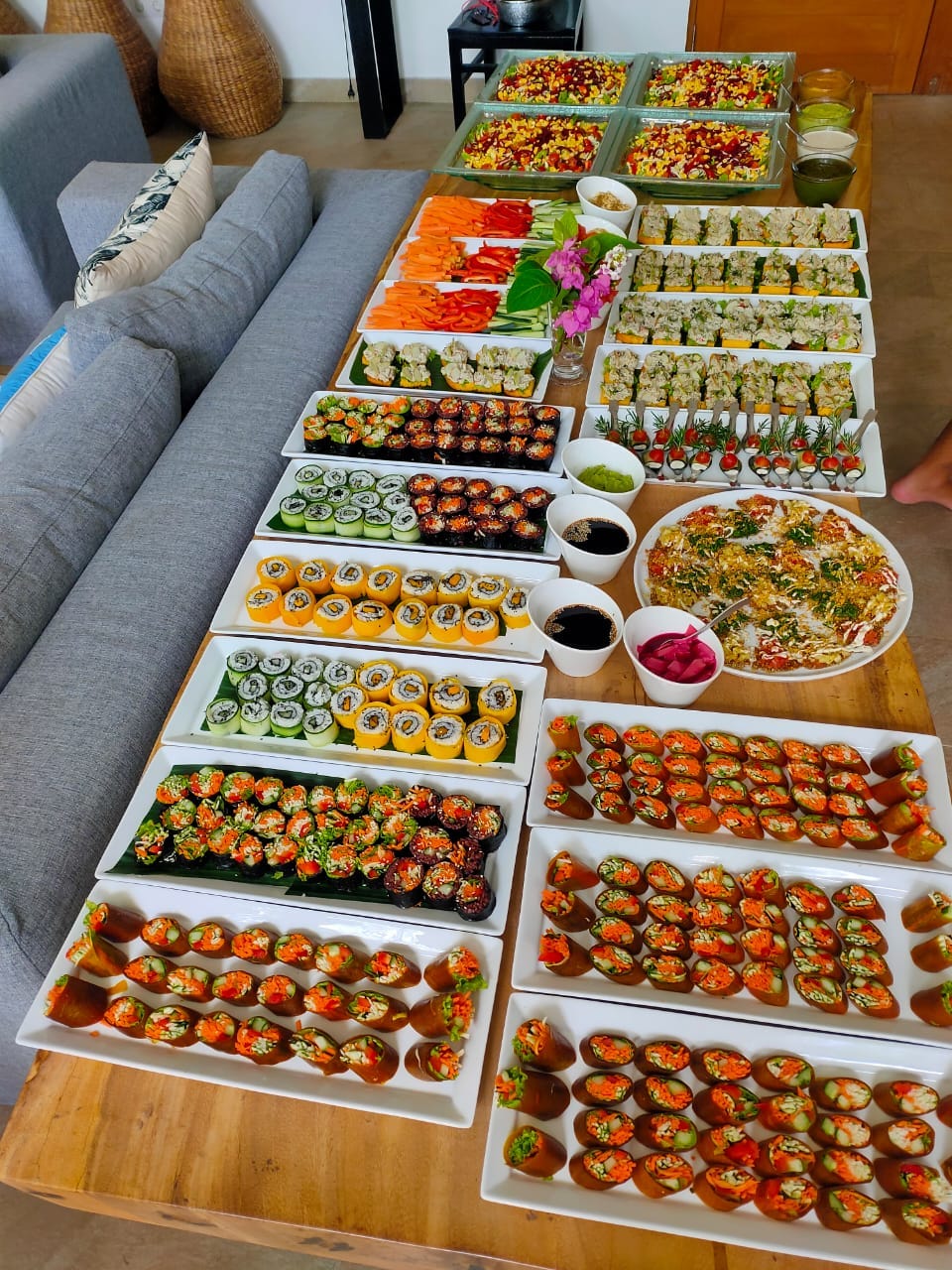
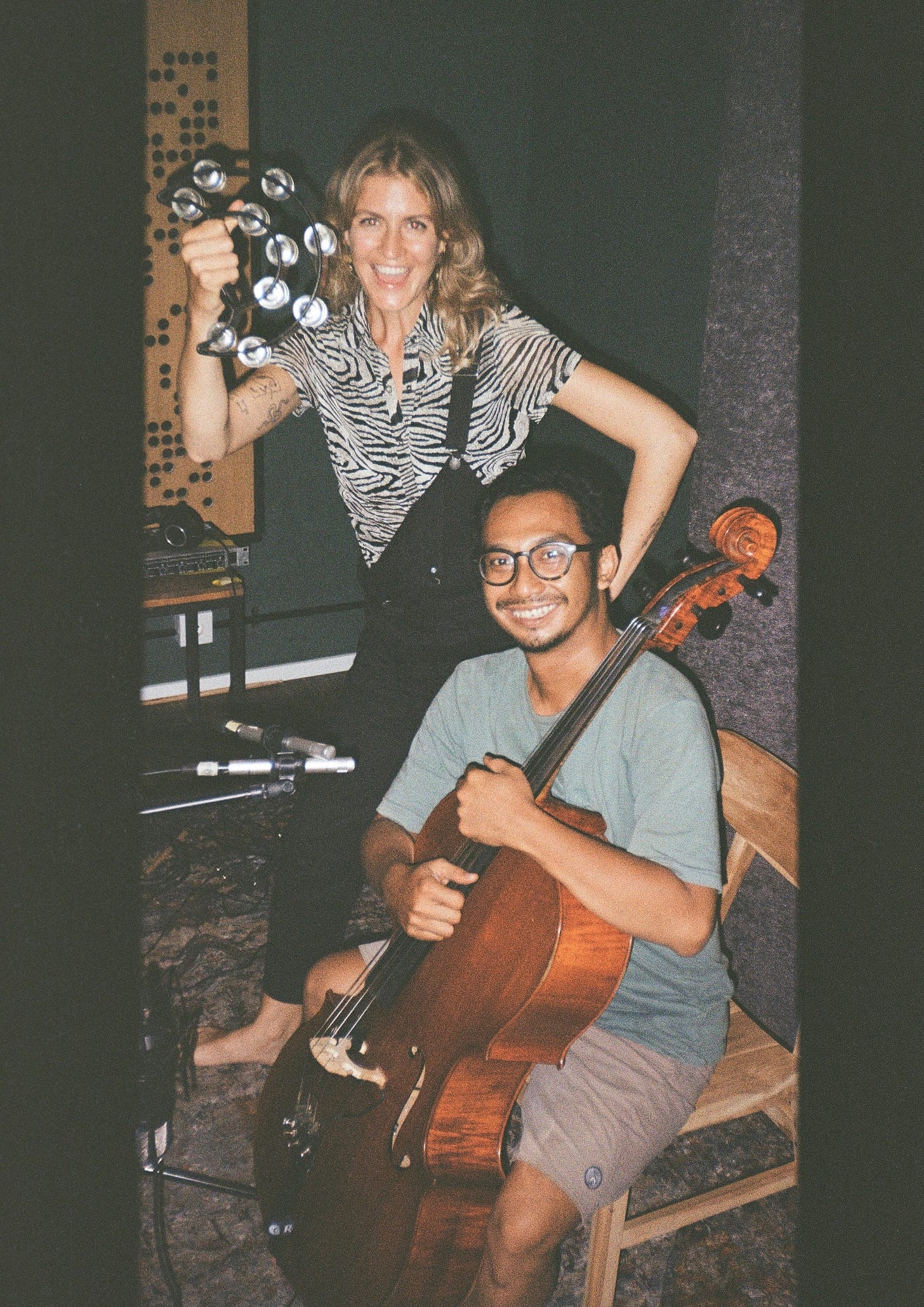
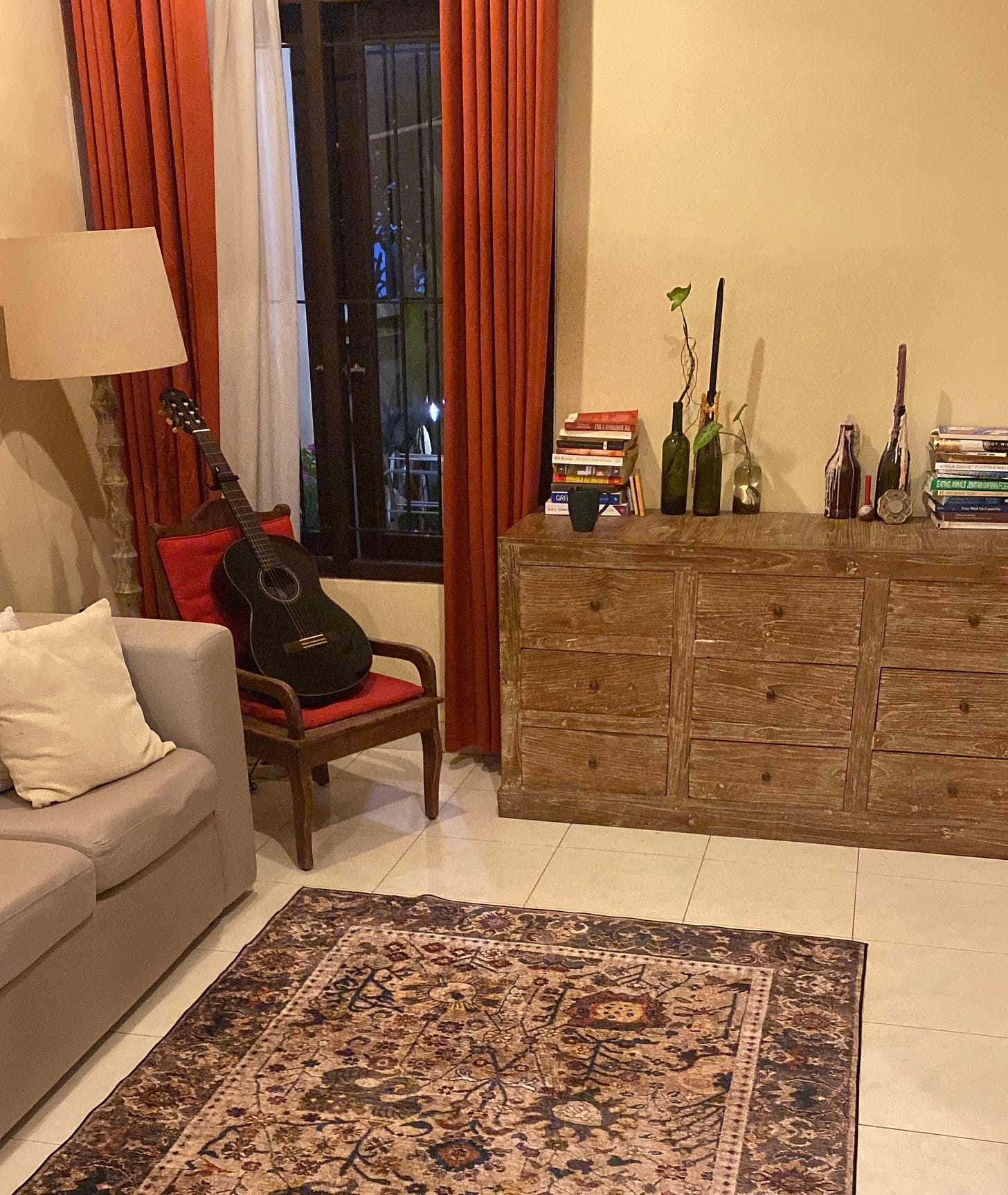
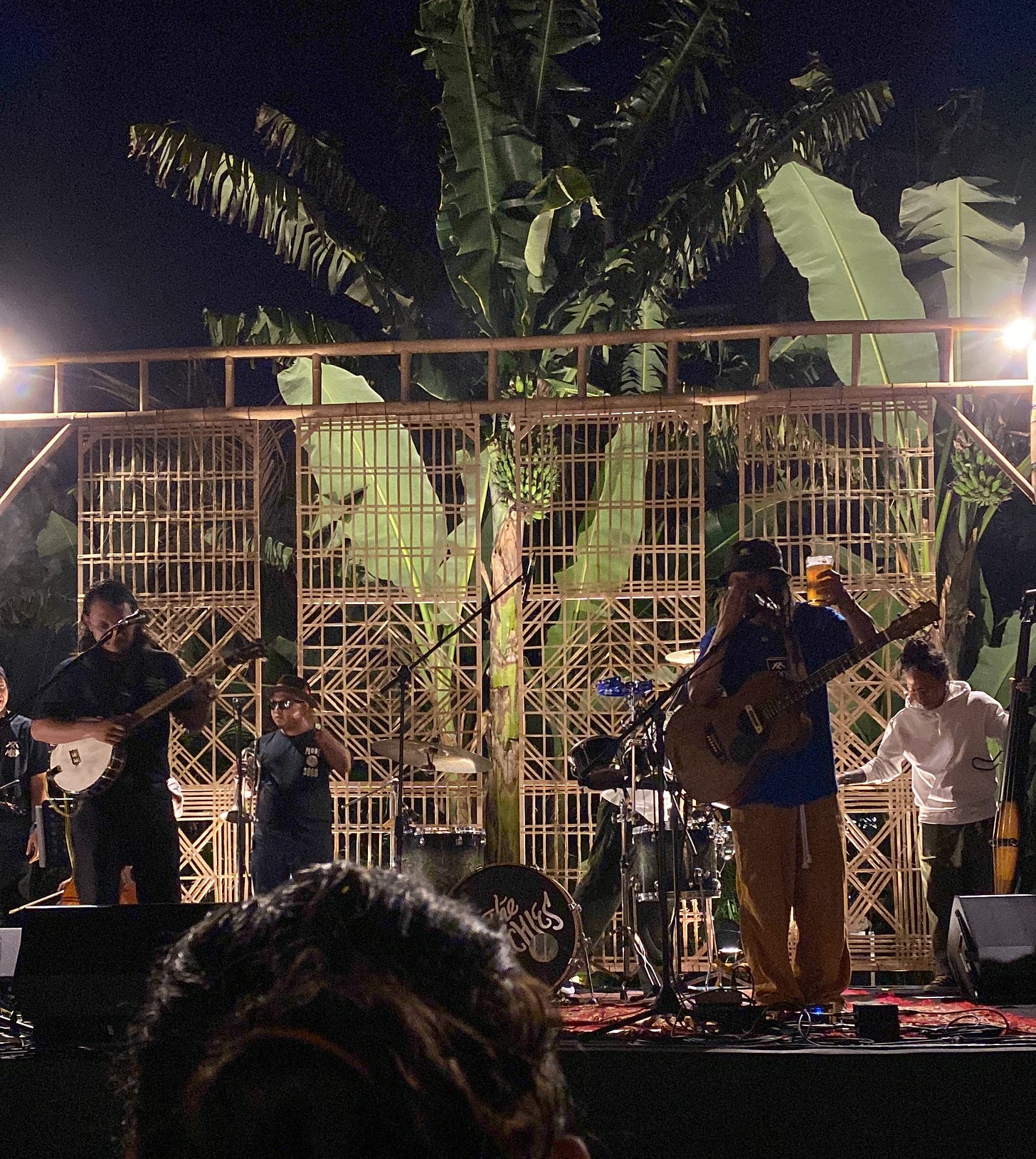
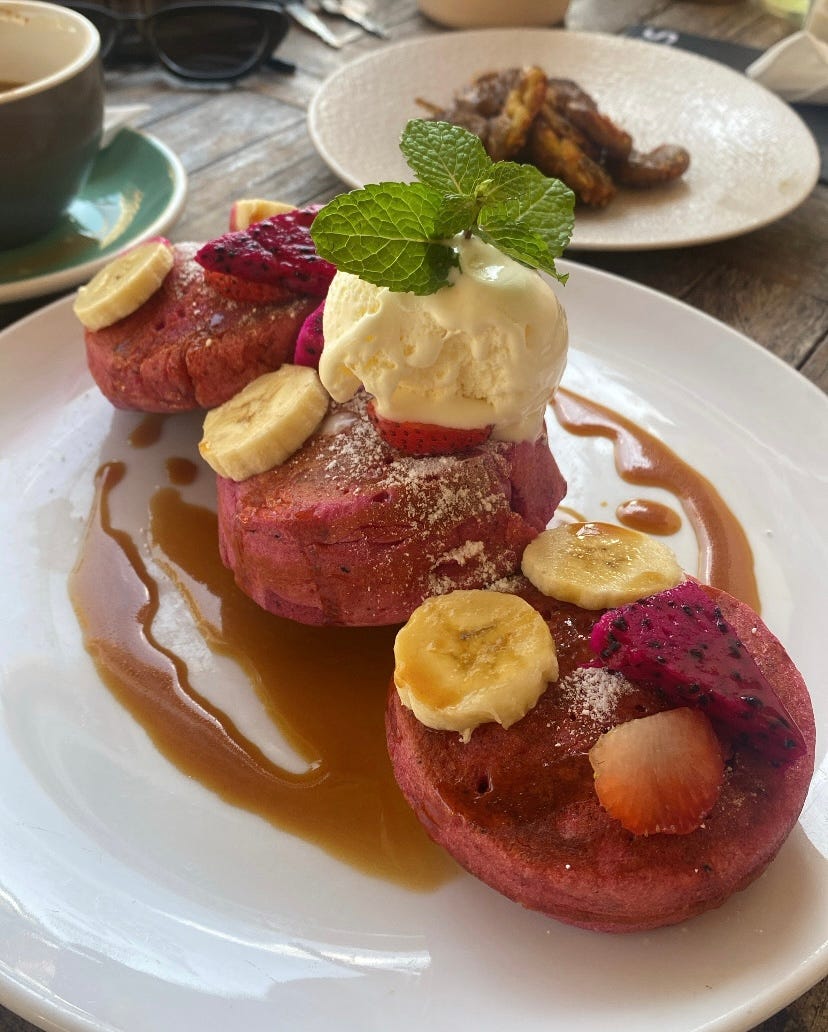

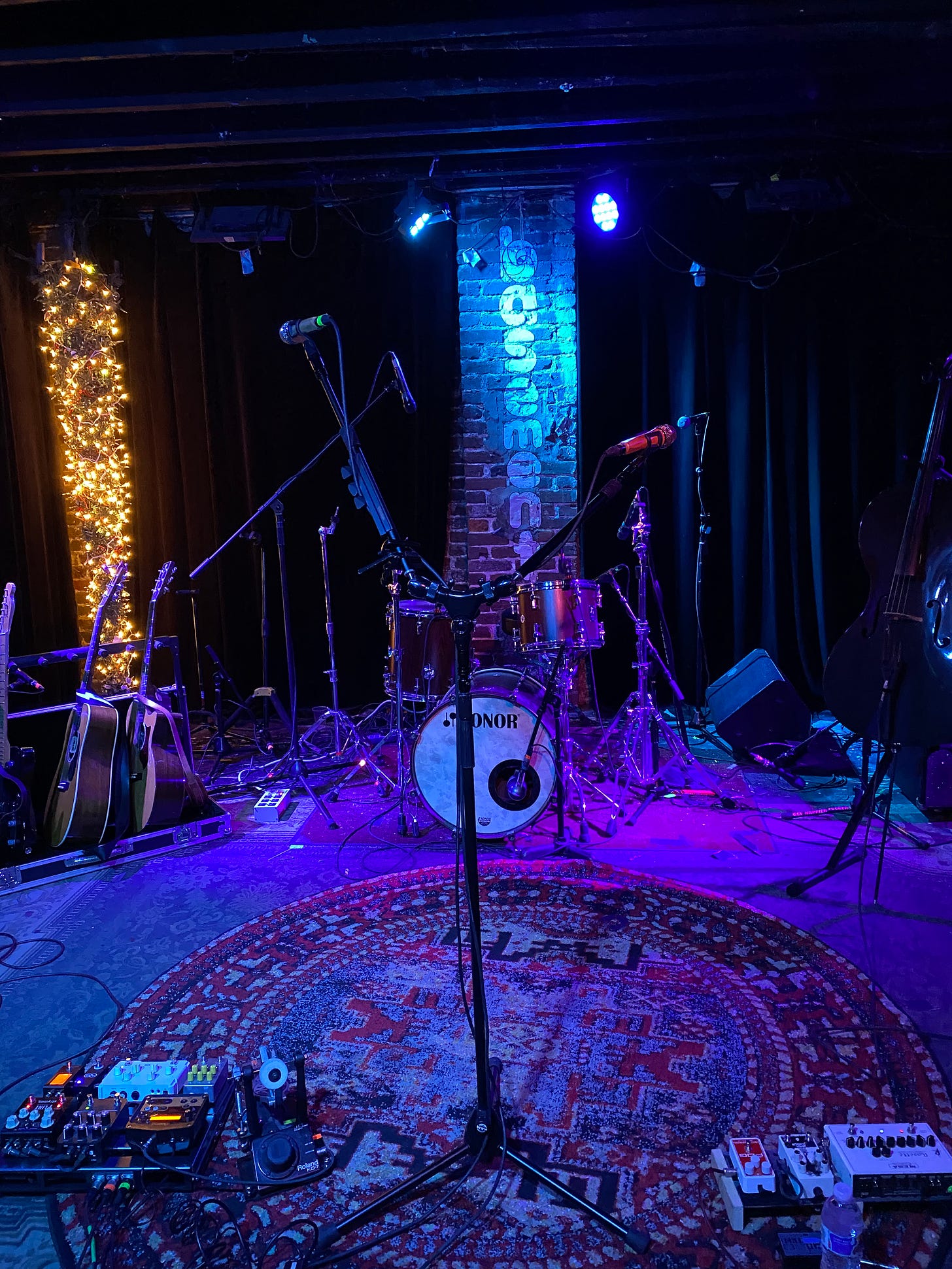
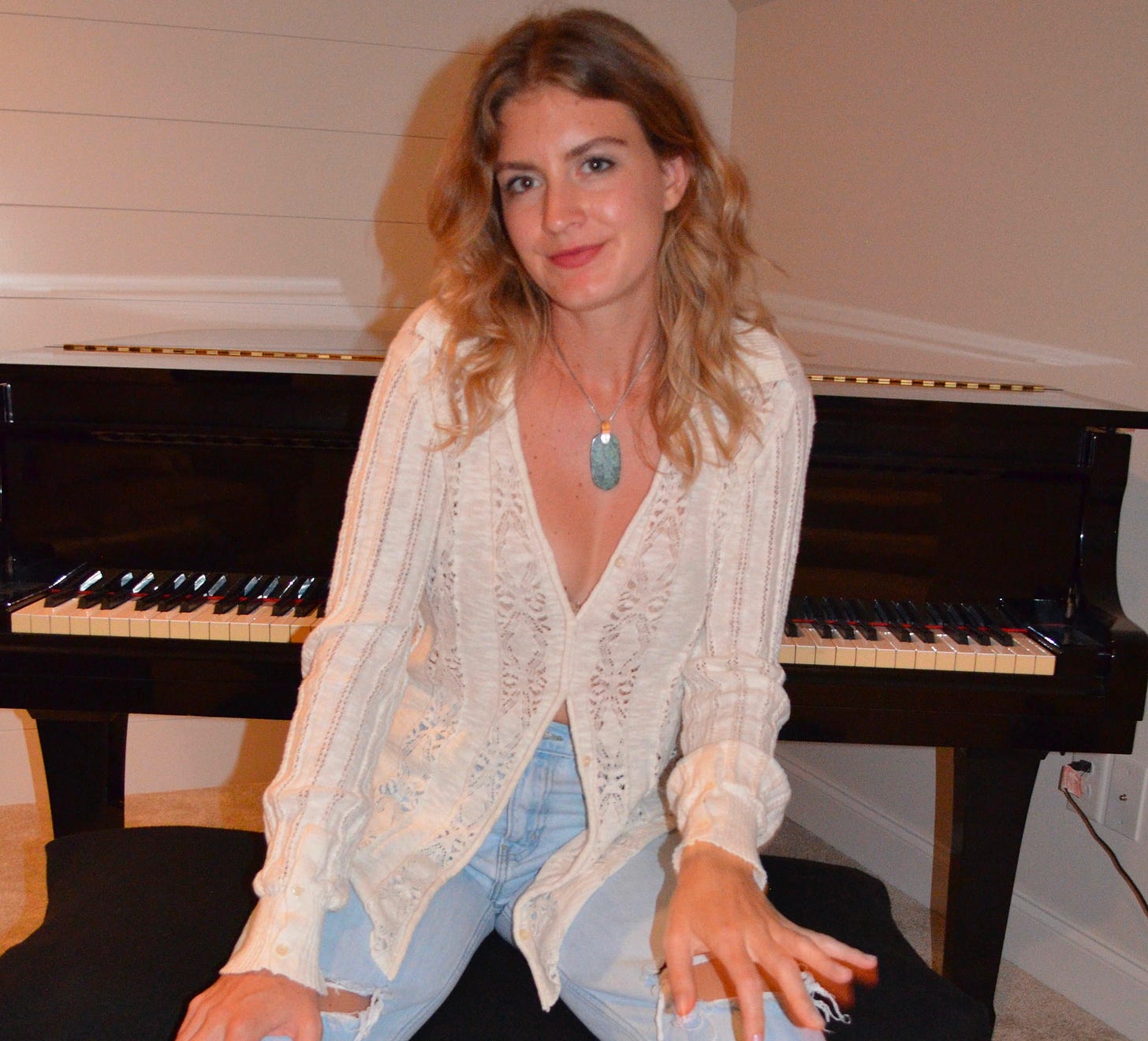
Yup, that pretty much sums it up! ☺️
What an amazingly insightful piece! I especially relate to the talky-talk-talk part. The paradox of inspiration is real. Thank you for sharing Syd!